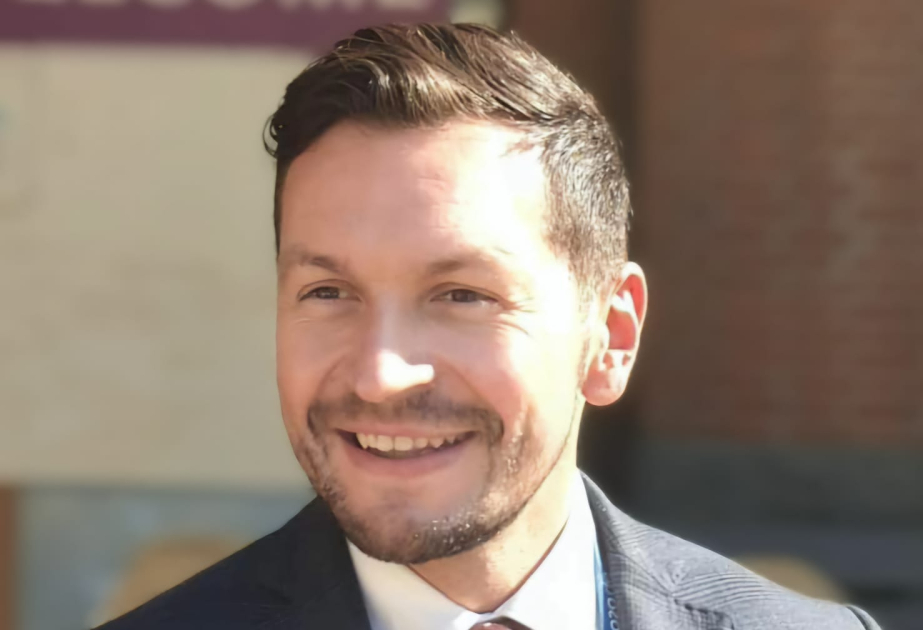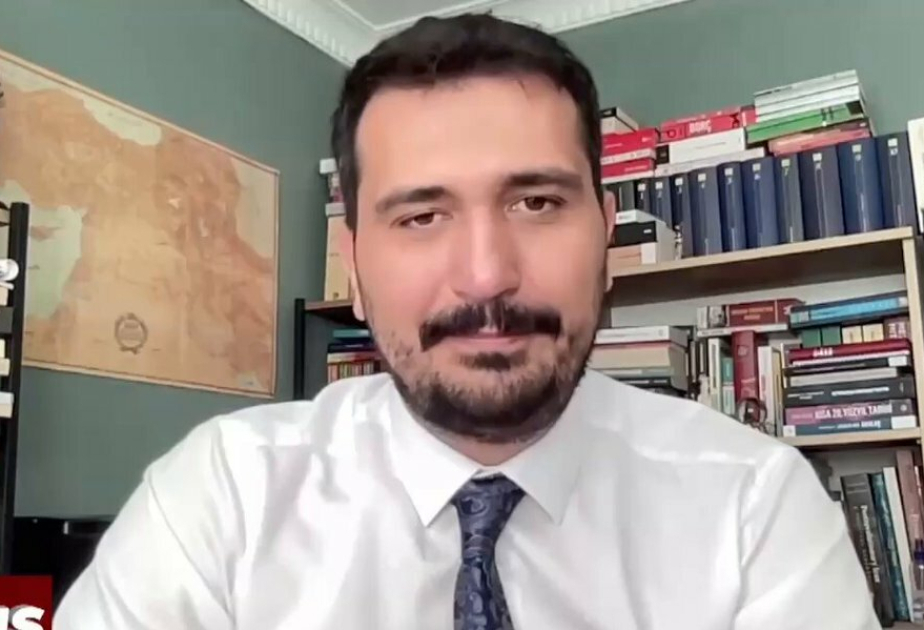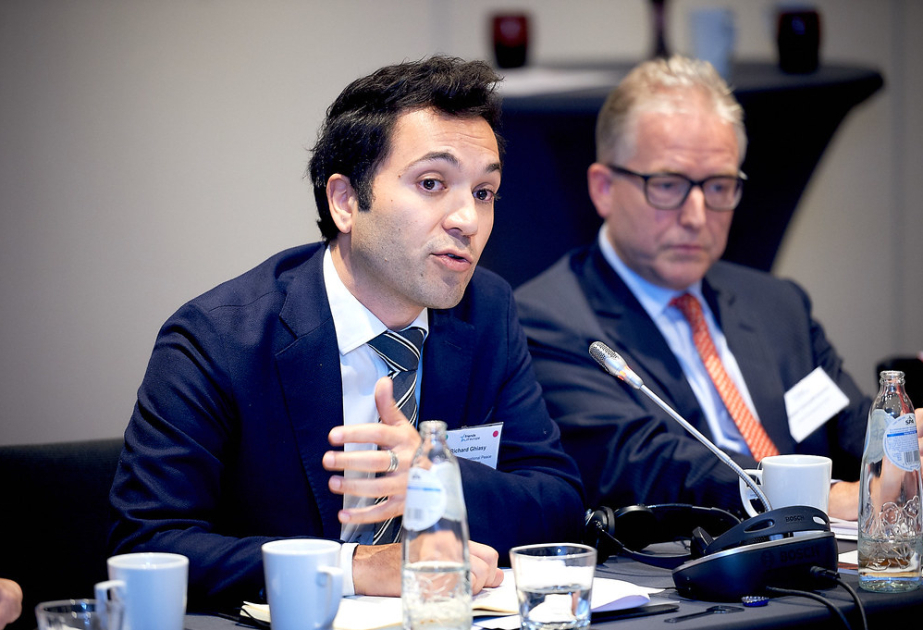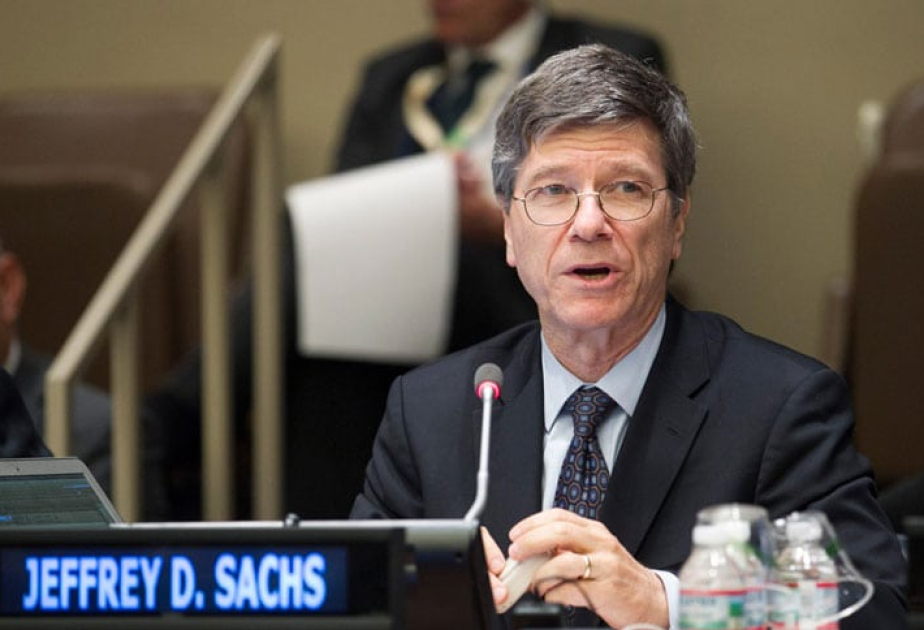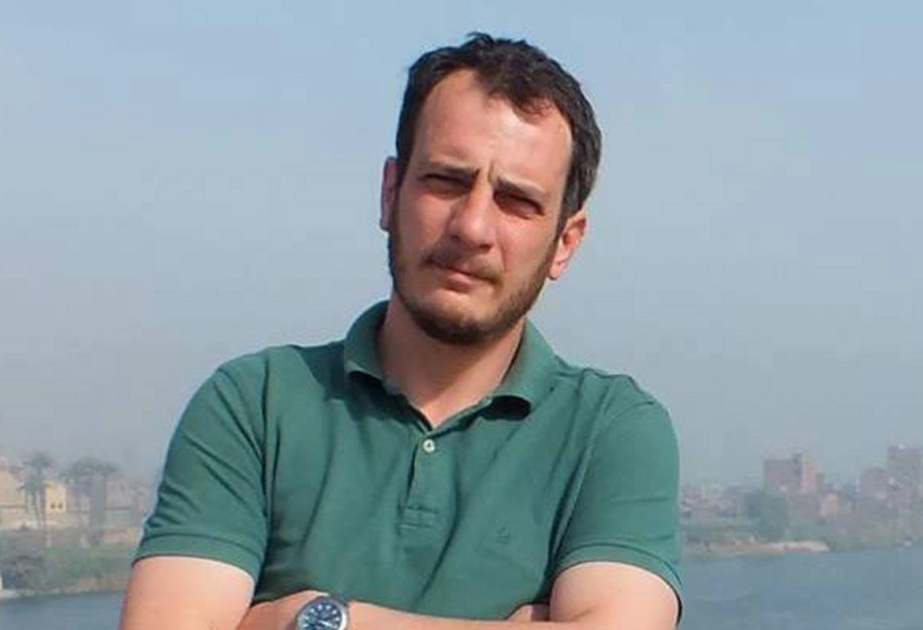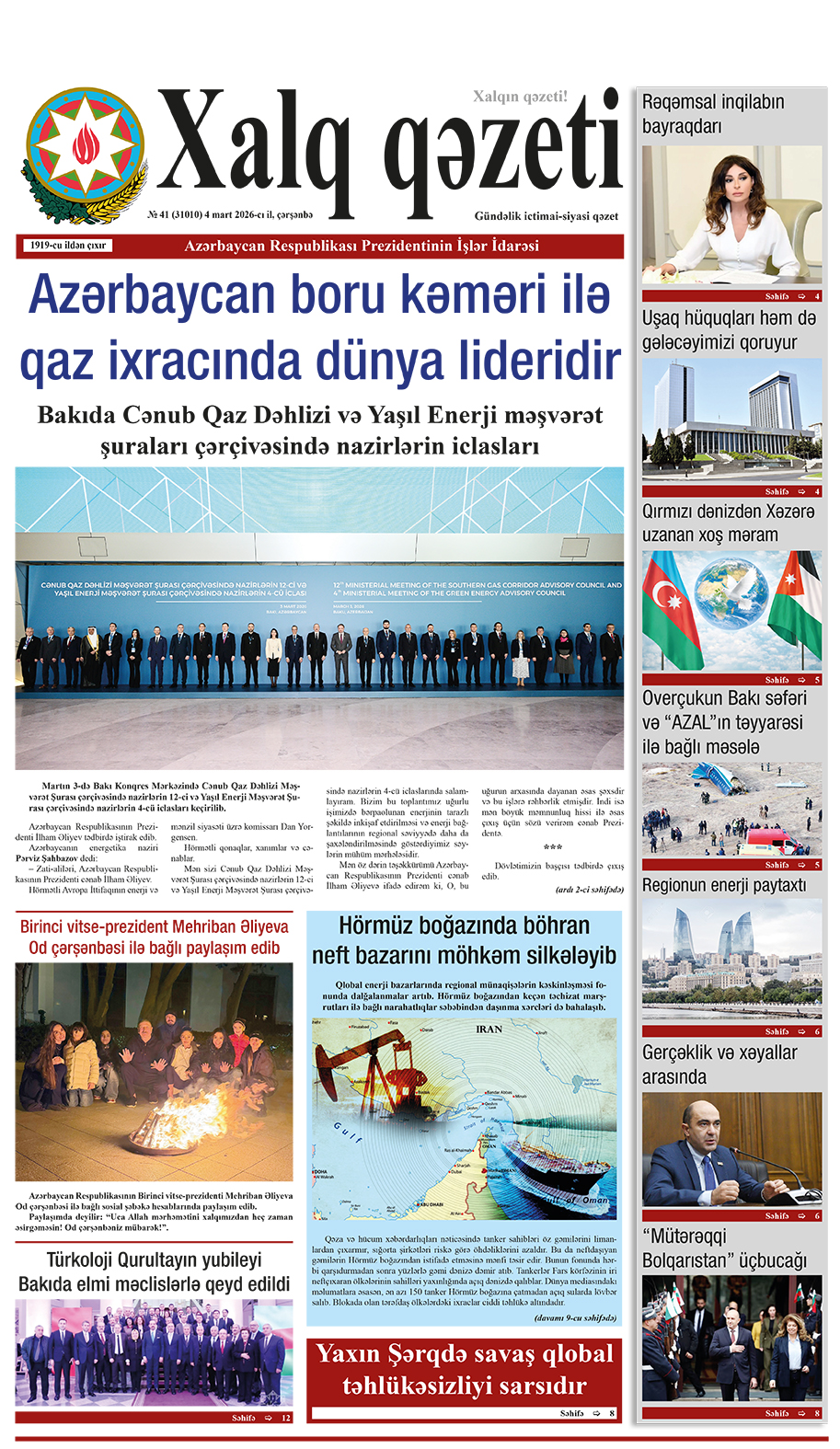I never stop talking about Azerbaijan - interview with associate editor of National Geographic Traveller magazine
Farida Zeynalova has been a member of the editorial team at National Geographic Traveller (UK) for almost a decade and is currently associate editor of Food by National Geographic Traveller. In her interview with AZERTAC, Zeynalova reflected on her career, Azerbaijani roots, and favourite national dishes.
- Could you start by telling us a bit about yourself?
- I was born in Baku and moved to the UK with my family when I was nine years old. My parents are from Shamkir and Khachmaz, and I spent some time in both regions as a child. I have many fond memories growing up there, from the smell of flame-fuelled mangals to swimming for hours in the Caspian Sea. And although I haven’t lived in Azerbaijan for 25 years, I still feel very Azerbaijani in so many ways. In fact, I never stop talking about it. I’m very proud of my roots.
- You’ve been part of the National Geographic Traveller (UK) team for nearly a decade. What initially drew you to travel journalism, and how did your journey with NatGeo begin?
- I’ve been a very curious person since I was very young – fascinated with what people are doing and why. As I got older, this never changed. I knew I wanted a job that allowed me to travel the world and discover the joys, complexities and nuances of different cultures. After finishing my degree in Journalism, I interned for several travel magazines. It wasn’t easy as they were often not paid, but I persevered until I found a junior position at National Geographic Traveller (UK) in 2015 and I worked my way up to where I am today.
- As the Associate Editor of Food by National Geographic Traveller, how do you approach storytelling through cuisine? What makes food a powerful lens for travel writing?
- For me, food and travel are intrinsically linked. The local food in a destination speaks volumes about its overall culture. A dish is never just a dish - it always has a story behind it: tales of resilience, traditions and family ties. I believe that sitting down and sharing a meal with someone is the ideal setup for getting them to share their life story with you, which is integral to good food and travel writing. I have been on assignment from Colombia to Jordan, from Belize to Iceland - sharing food, for me, is always the best way to connect with locals.
- What role does your Azerbaijani heritage play in how you perceive or tell stories, especially in a multicultural editorial environment like NatGeo?
- It helps me to understand other cultures better, especially when I see similarities in food in the Mediterranean, Middle East and even North Africa. Coming from a country like Azerbaijan, which has a small diaspora, I love educating people about my culture, so when I’m exploring another country, whether for work or pleasure, I give the locals that same time and respect back. I love writing about underrepresented subjects, like the influence of Arabs in the Caribbean coast of Colombia or how Mayans in Belize are keeping their traditions alive. It’s important to have diverse voices in media, especially within travel writing. I’m always pitching and writing stories about Azerbaijan, too, whether it’s a city guide to Baku or the Germanic influence on wine in Göygöl. I’m also the author of Berlitz Pocket Guide Baku - my motherland is one of my favourite destinations to write about!
- You’ve mentioned your love for a perfectly grilled shashlik in Azerbaijan’s hinterlands. What emotions or memories does that dish evoke for you?
- The smell of lamb shashlik is synonymous with my childhood in Azerbaijan. My grandad used to make it for me while singing Azerbaijani nursery rhymes. My brother still cooks it and we eat it marinated in herbs and pomegranate molasses. One of my most cherished memories is spending long summer days around a barbecue in our dacha. Relaxing and eating Azerbaijani kebab with my family has always been one of my favourite pastimes.
- How do you stay connected to your Azerbaijani roots while living and working in the UK?
- Through listening to music, cooking my favourite dishes and spending time with my family. Nothing makes you feel more Azerbaijani than gossiping with your loved ones and drinking tea with murabba.
- Are there any food from Azerbaijan that you think deserve more international attention?
- Too many! Dovga, piti, shah plov, khengel, qutab: they all deserve more attention because they’re delicious, unique and quintessentially Azerbaijani. Dolma, too - while many countries have their own version of it, I think the Azerbaijani one is unique: in both shape and flavour. My mother’s lamb dolma, drizzled with garlicky yoghurt, is one of my favourite things on the planet.
- Do you have any other Azerbaijani colleagues at National Geographic? How do your colleagues usually react when you mention you’re from Azerbaijan. Are they familiar with our culture and country?
- No, I’m the only one. They’re usually intrigued, and of course I love telling them all about it. I keep a small flag and a mini-carpet on my desk so everyone knows where I am from. I also have a book called ‘100 Questions About Azerbaijan’ in case they ask something I can’t answer.
- What advice would you give to young Azerbaijani writers who dream of working in international media or travel journalism?
- Please don’t worry about what other people are doing - there will always be someone one step ahead of you. Recognise that you have something unique and use that to your advantage. Read plenty of travel writing but don’t let it influence you too much – be bold and forge your own voice. Start off writing about what you know and love, whether it’s food, nature, architecture, etc. It’s a balance of perseverance and a genuine passion for storytelling.
- Has your perception of “home” changed after visiting so many different places?
- I have met so many people from all walks of life and learned that ‘home’ means something different to everyone. It might not be where you were born or what your passport says, it’s wherever you feel at peace and like you belong. For some people, home is multiple places, depending on how they’re feeling or what stage of their lives they’re in. Home for me will always be wherever my mother is.
- If you could write a full NatGeo feature about a single region in Azerbaijan, where would it be and why?
- I would love to explore more of Quba, and I think Shusha is interesting too. I’ve always been so intrigued by Nakhchivan, it feels isolated and mysterious to me. So it would probably be one of those three.
- Do you visit Azerbaijan often? What does coming back home mean to you now, both personally and as a storyteller?
- I try to visit at least every two years: I usually land in Baku and go see family in Shamkir. This year I visited as a journalist to write a story about Azerbaijani wine (the article will be live on nationalgeographic.com/travel very soon). Every time I go back to Azerbaijan, I learn something new: new ways I am Azerbaijani, and new ways I am not. Belonging to two very different worlds is at once complex and incredibly rewarding.
Ayten Abbasli
Special correspondent




